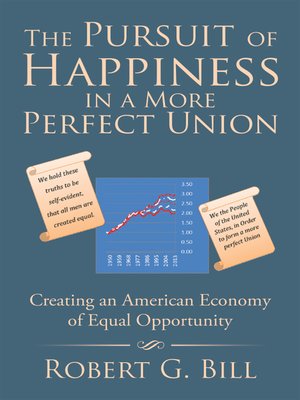The Pursuit of Happiness in a More Perfect Union
ebook ∣ Creating an American Economy of Equal Opportunity
By Robert G. Bill

Sign up to save your library
With an OverDrive account, you can save your favorite libraries for at-a-glance information about availability. Find out more about OverDrive accounts.
Find this title in Libby, the library reading app by OverDrive.



Search for a digital library with this title
Title found at these libraries:
| Library Name | Distance |
|---|---|
| Loading... |
The conflict over public economic policy between Conservatives and Liberals appears to have become a permanent feature of the American political landscape. Conservatives seek economic solutions with the market as virtually the sole-organizing economic principle, invoking individualism inspired by the Declaration of Independence's right to the pursuit of happiness, while Liberals look to an important economic role for a federal government established by the constitution to promote the general welfare. In addition to the disagreement among the political class, there is also no agreement among economists, with no models reliably predicting the economic crises of recent decades. Under these circumstances, the author believes individualism and the concern for the common good may only be reconciled through policies to promote equality of opportunity or, as Abraham Lincoln expressed it, "equal privileges in the race of life, with all its desirable human aspirations." The reconciliation of individualism and the common good is developed through reviews of the meaning of liberty, happiness, and their economic implications. The historical performance of the American economy is described in the context of the evolution of American federal government from one of limited economic scope, supporting laissez-faire capitalism, to the current mixed government. The more expansive role of government is described in terms of taxation policy and spending, including concerns over the national debt and its significance. With this background, the general reader is invited to follow the author's path to a policy of equality of opportunity with specific proposals for an end to poverty; assistance to children, postsecondary education, and training assistance; and commitments to social and medical security. A specific taxation policy is proposed to fund these programs while maintaining a prudent and manageable national debt. Associated with these proposals are reforms to make the federal government more representative of the people.







